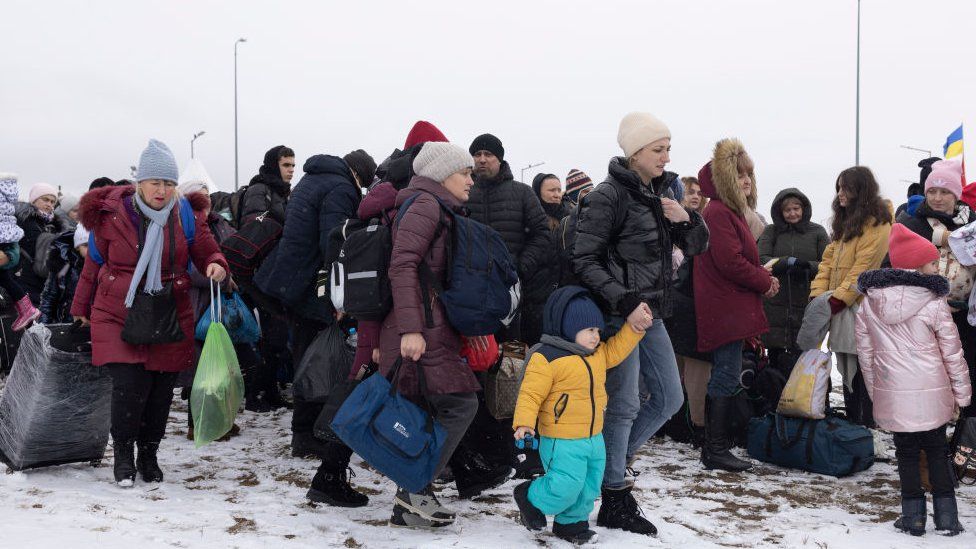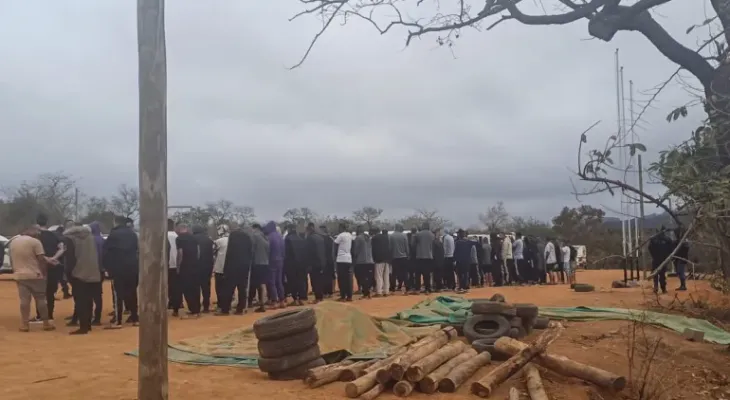
More than 150,000 people have registered interest in the government’s Homes for Ukraine scheme, which is due to launch fully on Friday.
But the visa process cannot be started until potential hosts have the names of specific refugees they want to help.
In the meantime charities say they have been “deluged” with calls from people wanting advice on finding a match.
Meanwhile, the government is warning potential hosts not to link up with refugees through informal channels, such as social media.
“Our advice would be to stick to community groups and councils as they’ve got the expertise,” one member of the government’s Department for Levelling Up told the BBC.
The department said details about the matching up process would be published on Friday.
Local councils are expected to be leaned on heavily to help support refugees arriving to the UK, and the government hopes charities, businesses and faith and community groups will help the effort to match people up.
About 70 Ukrainian refugee families have already registered with Robina Qureshi’s refugee hosting programme, Room for Refugees – which also helps people fleeing many other countries.
But she says her charity’s rigorous security checks and vetting processes are being slowed down by an inundation of calls and emails they’re getting from members of the public seeking clarification about how to match up with a refugee.
“Right now every day is time wasted, and that’s what I find quite upsetting,” Ms Qureshi told the BBC.
She said she had been disturbed by some specific requests to “only host Ukrainians” rather than refugees of other nationalities who are also vulnerable.
Ms Qureshi said she appreciated the “goodwill” of those who had registered their interest with Homes for Ukraine, but added: “We haven’t got the infrastructure to deal with inane comments and questions.”
Other organisations that work with refugees have voiced confusion and reluctance to be involved in helping with the government scheme.
West London Welcome said it was not yet referring people to Homes for Ukraine because it was “not confident” in the government’s vetting process.
And a spokeswoman for IMIX, working on behalf of Reset UK, said it was “unclear currently how this matching process will work”.
Andy Hewett, head of advocacy at the Refugee Council, said the scheme could be “too slow and complex” to help the most vulnerable refugees.
He said the government must match the “incredibly heart-warming” public generosity with a scheme “that really works” for people fleeing Ukraine.
“We continue our plea to government to waive all visa requirements for Ukrainians – just as our EU neighbours have – so that all those who want to come to the UK can do so quickly,” he added.
Labour has welcomed the scheme but urged the government to be more involved in the matching-up process.
“The biggest barriers are excessive bureaucracy and the DIY nature of this scheme,” said Lisa Nandy, shadow levelling up and housing secretary.
“The government needs to cut unnecessary paperwork and play an active role in matching sponsors to refugees.”






